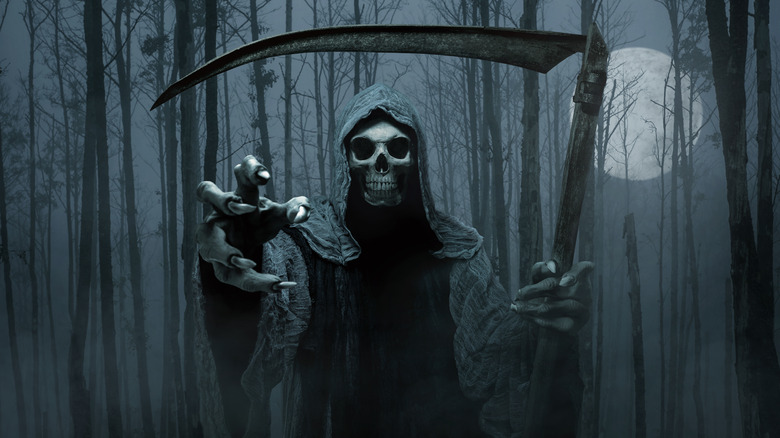This Is The Deadliest Month Of The Year In America
When you think about prospective threats to your well-being, your mind probably gravitates toward tangible things like muggers, rabid dogs, car accidents, or any number of other unpredictable misfortunes that could befall you at any moment. What you probably don't think of is the calendar year, though according to certain experts, you actually have good reason to.
Like with any other area of life, the passing of each year is accompanied by certain trends that aren't just restricted to the changing of the seasons. Of course, there's seasonal depression to be wary of (per the Cleveland Clinic) as well as the heightened risk of allergies and certain illnesses that crop up in the spring and fall (via Sioux Falls Specialty Hospital). However, did you know that there is one particular month out of the year that produces more casualties than any of the other subsequent 11? That month is January, according to Live Science.
January is the deadliest month of the year
If you initially assumed October was the deadliest month of the year, given all the malevolent monsters, ghouls, and sinister spirits said to be roaming the streets, think again. Live Science reports that more people die in the month of January than any other time of year, strangely enough. Sadly, the onset of a New Year denotes the end for some 251,699 people on average in the United States alone as the Earth begins another revolution around the sun.
In 2015, The Washington Post reported on behalf of the U.S. Centers for Disease Control and Prevention (CDC) that there were around 40,000 to 60,000 more deaths in January than there were in August and September between 1999 and 2014. Is it simply that the first month of the year is actually cursed, or is there another reason you're more likely to give up the ghost in the weeks following New Year's Day?
Why do more people die in January than any other month?
According to the World Health Organization, ischaemic heart disease causes more deaths every year (roughly 16% of the world population) than anything else. Experts agree that the ailing heart, which is especially vulnerable, is more liable to react negatively to lower seasonal temperatures. So January's unforgiving winds and tendency to freeze the soil (per PowerBlanket) can easily pose serious problems to anyone experiencing heart complications.
But why does the cold affect the heart so severely? The British Heart Foundation reports that when the body is subjected to extremely low temperatures, it has to amplify circulation and respiratory functions to keep itself warm. Essentially, cold winter months demand that the heart work overtime to keep its human capsule sufficiently toasty. So if you already have a pre-existing heart condition, this phenomenon may prove to be more than your little ticker can handle. So when approaching January each year, do yourselves and your hearts a favor and stay warm, folks!


